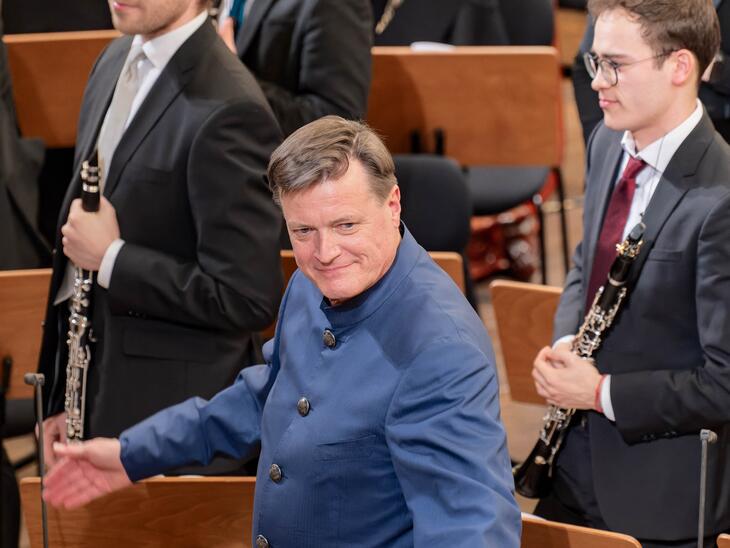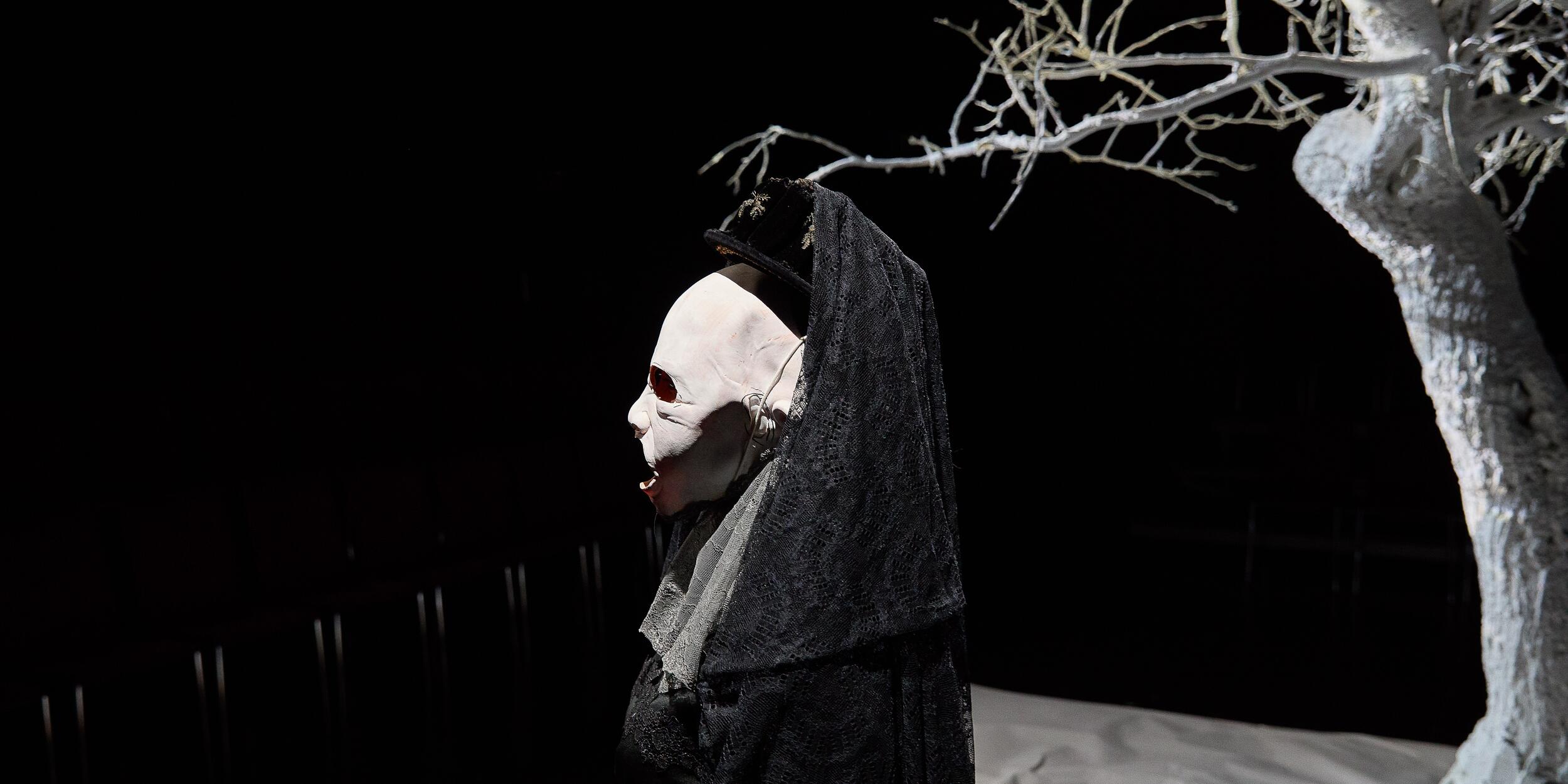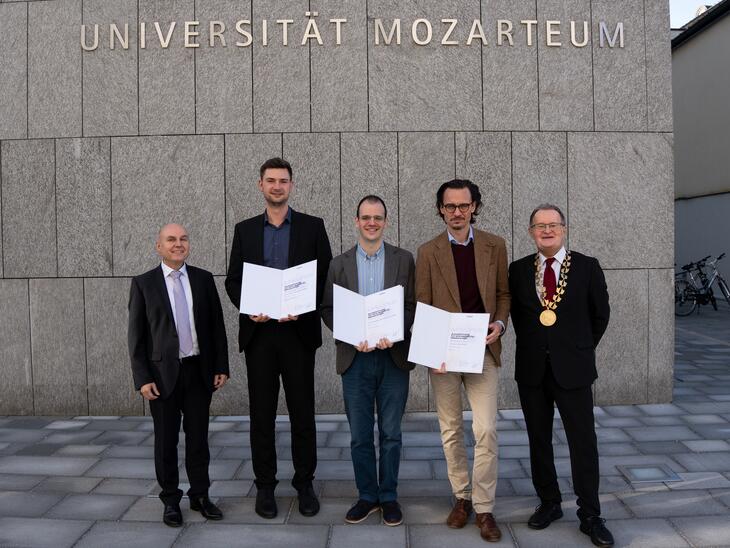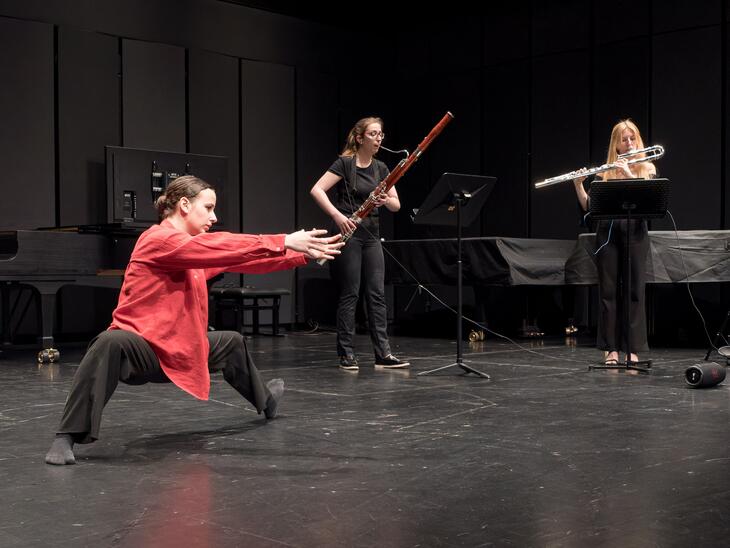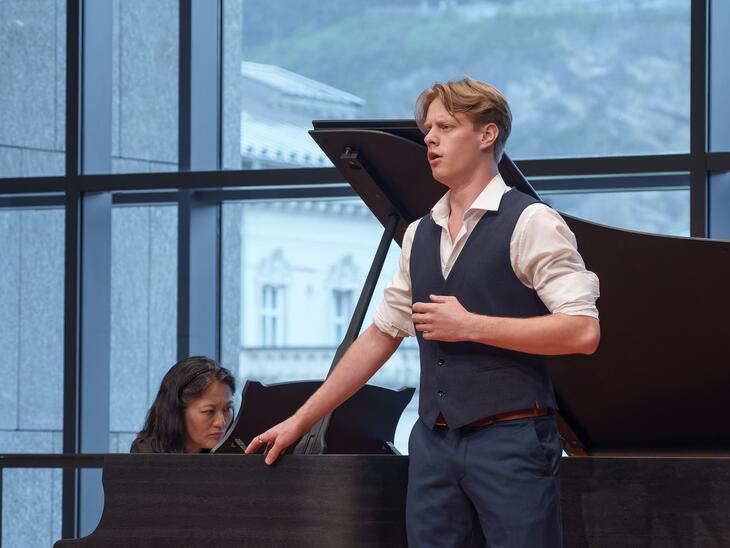With this early Baroque opera, the last by Claudio Monteverdi, you are taking students to the beginnings of today's musical theater. What is the significance of the work for young students today? The importance of Monteverdi's operas for future opera singers cannot be overstated. It is always important, indeed fundamental, to devote oneself precisely to the beginnings of one's "guild," and that lies in the Monteverdi period. Monteverdi played a decisive role in shaping one of the central "times of change" in the history of music, in which one slowly said goodbye to an extremely artificial, above all vocal polyphony, to the simple monody, a chord-accompanied solo singing, the beginning of the basso continuo age. His neologism of "seconda pratica" marks the transition from modality to major-minor tonality, from horizontal-melodic to vertical-harmonic thinking. what are the challenges associated with this work? One of the central challenges lies in the actual performance of this opera. No scores were created at the time. All that has survived is the vocal part, which was accompanied by a simple bass line and occasionally provided with a basso continuo figure. Exactly which instruments were played when can at best be deduced from descriptions of performances at that time. For us today, this means completely recreating the score, ultimately a very creative act that makes each performance unique. This was already the case at that time, and it was virtually the principle. One made music with what was available and adapted it to the performance and spatial conditions. Our continuo group consists of two harpsichords, a portative, lute, theorbo and guitar as well as viola da gamba and violoncello, sometimes with violone. This is already a very strong and varied continuo, which of course is not always used simultaneously. This is supplemented in the ritornellos and arioso parts with a small string orchestra, some recorders, two tines and in two places with two trumpets. The version is thus a self-creation, built on the foundation of the excellent edition by Alan Curtis, who compares the Venetian and Neapolitan versions. Which parts one orchestrates additionally depends largely on one's own focus and scenic realization. Director Alexander von Pfeil and I very much welcomed and enjoyed this "freedom", as it gives us the opportunity to really create something of our own. This is also felt by the students, whom we involve in the process whenever possible. with Herbert von Karajan and Nikolaus Harnoncourt, Monteverdi's operas found their way into the great European opera houses. Is this work a kind of "foundation stone" for the development of a repertoire for young artists? So far not, but more and more the importance of the musico-dramatic language developed by Monterverdi and immediately brought to a first perfection is penetrating into the general consciousness. On the one hand, this is usually realized in a very pleasant tonal range without the absolute top notes in high and low, which is very pleasant for students who are still in vocal training. The focus can therefore be placed much more directly on the musical interpretation and its scenic realization. On the other hand, the alternation between declamatory, almost spoken, but still sung recitative sections and freely combined arioso elements for the shaping of affect, which is sometimes only a few measures long, leads overall to a great flexibility and virtuosity in dealing with musico-dramatic presentation. This forms an excellent foundation in the area of affect for the baroque music that immediately followed, including the Viennese classical period and beyond. In this respect, working out a Monteverdi opera can indeed be something like a "foundation stone" for everything that follows. A look at the text and plot: how can the libretto be placed in the period and what effect does the drama have on the performers? "L'incoronazione di Poppea" is a radical work. Almost all the protagonists are guilt-ridden; there are hardly any, if any, "sympathetic" characters. The emotional impact of the text and music of this opera is immense, then as now; it was reported that "the ladies lost their composure in the audience" at a time when loss of self-control was not socially tolerated. Creating direct emotional impact was one of Monteverdi's main concerns. Nerone is with us all ruler - all child, and in this combination lies the dynamite. By virtue of his position of power, he wants to change things as he sees fit. Infantile egomania, emotional oversensitivity with simultaneous extreme callousness, with this character profile he is a found victim for Poppea, who is happy with any means of seduction in order to unscrupulously attain absolute power. This unfortunate combination drags all involved into a whirlpool of counter-violence, making Octavia, the reigning empress and wife, Ottone, the noble officer with injured manhood, and Drusilla, Ottavia's and Ottones confidante, devise a murder plot, which in the end does not work and is uncovered, even with the direct help of the world of the gods. It can be called "strong stuff" even in those days, since the weaknesses of the ruling class are mercilessly exposed. Excessive violence, open sexuality clearly implied on stage, coupled with high emotionality are, of course, also enormous challenges for our singers, as they only very rarely occur in this clarity in later opera literature and only reappear in the 20th century with Shostakovich, Stravinsky and Expressionism, among others, with all its counter-reactions.
